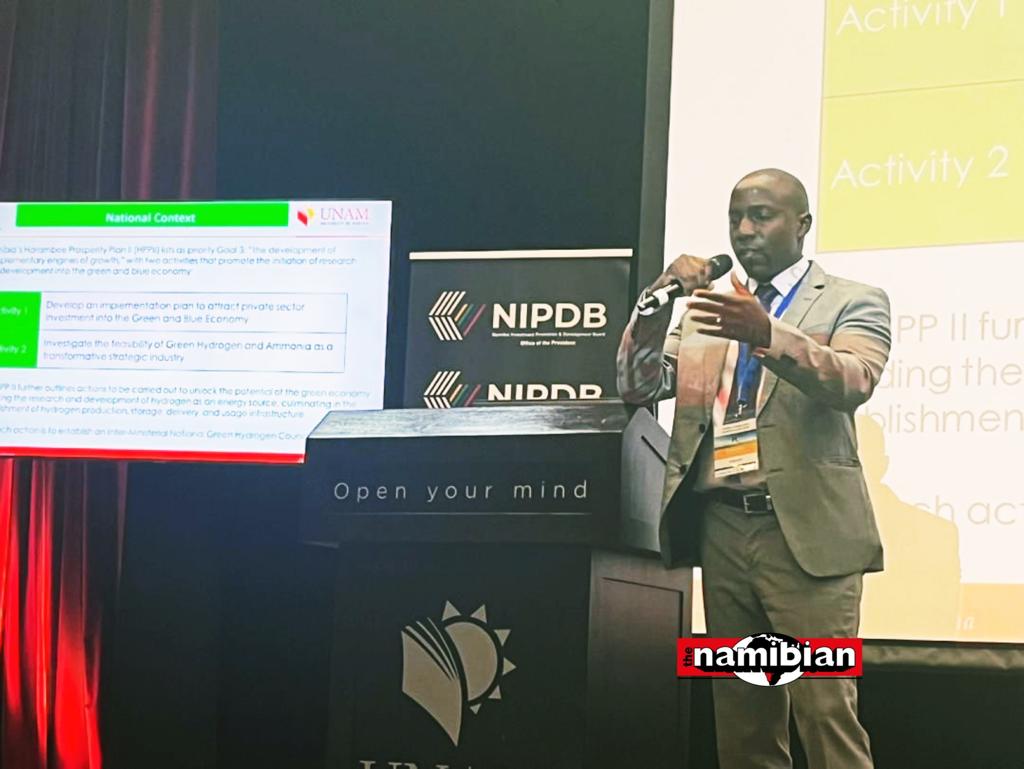Namibia’s green hydrogen commissioner, James Mnyupe, will be launching a personal initiative to invest in the country’s green hydrogen prospects, he says.
“As an individual I have an idiosyncratic responsibility. I learn so much from my job, and I am endowed with so much information. I want to establish conduits to ploughing back into Namibia,” he says.
These plans involve a scholarship and tertiary education programme.
The Mnyupe family trust plans to sponsor two students to pursue studies in any field within the green hydrogen industry.
Mnyupe says he also plans to join the Namibian Green Hydrogen Research Institute as a visiting lecturer focusing on green industrialisation.
The lecture series will alternate between the University of Namibia and the Namibia University of Science and Technology once a month.
“I come from a family of teachers and would like to serve my community in the same way,” he says.
Mnyupe says he wants to work with Namibia’s media to demystify the green hydrogen agenda.
This would include a podcast series and talks on local radio stations.
Mnyupe says he will use his personal funds, funds from the Mnyupe family trust, and dividends from his shares in Allan Gray Namibia.
Furthermore, the commissioner says he hopes to launch a television segment in collaboration with Miss Earth Namibia, Martha Kautanevali.
Kautanevali has shared her enthusiasm regarding the project.
“This plays a pivotal role in the success of green hydrogen, especially in the context of Namibia’s sustainable development efforts. Through this programme we will raise awareness and garner support from various stakeholders, including the public, investors, and policymakers,” she says.
Mnyupe estimates he would need N$200 000 per year to run the initiative.
“The idea is to send a message, not just to students, but to the Namibian government and corporates, that if we don’t put our money towards schooling the younger generation and providing the skills, who is going to do it?” he says.
Until now, Namibia’s green hydrogen social endeavours, including scholarships from the Southern African Science Service Centre for Climate Change and Adaptive Land Management, have been sponsored by donors.
“To date the budget that we as the Namibian government have put aside to build this agenda has been zero. That is not good enough,” Mnyupe said at a recent green hydrogen masterclass.
Speaking at the same event, Zivayi Chiguvare of the Namibia Green Hydrogen Research Institute said all Namibians must consider how they are going contribute to the development of the green economy.
“Identify your role and act accordingly,” he said.
Stay informed with The Namibian – your source for credible journalism. Get in-depth reporting and opinions for
only N$85 a month. Invest in journalism, invest in democracy –
Subscribe Now!










